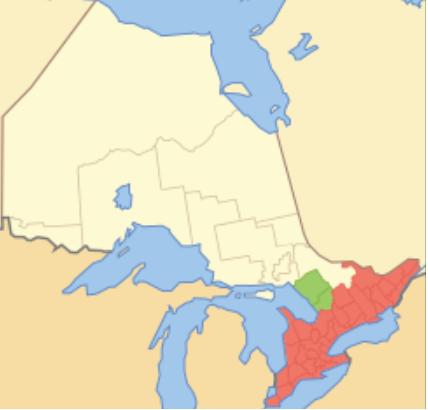Canada’s Second Worst Ever Forest Fire Season

2025 is the second worst forest fire season in Canada, ever. 7.3 million hectares of forests – an area the size of New Brunswick – have been transformed from cool, shaded habitat, into smoke and charred husks. Wreaking havoc on air quality from coast to coast to coast.
QUICK STATS/QUOTES : 2025 WILDFIRE/HEAT SEASON IN CANADA
(Updated as of August 14, 2025)
Wildfires:
- By mid-August, across Canada, some 7.3 million hectares of forests have burned, an area roughly the size of New Brunswick, or exactly half the size of southern Ontario (south of Parry Sound) and more than double the 10-year average, and this number is climbing by substantial amounts daily.
- This is the second worst wildfire season on record and follows in the footsteps of the devastating 2023 season. (2024 was the 3rd worst season.)
- John Valliant, award-winning author of Fire Weather, reports that the CEO of Red Cross Canada recently told him that 17 years ago “eighty per cent of our work was outside Canada. Now, eighty per cent of our work is inside the country.”
- From mid-May to the end of June, more than half of those displaced by wildfires in Canada (approx. 40,000 people) were from Indigenous communities. Almost 34 Indigenous communities, including in nearly every province, were affected.
- Two people died in the 2025 Lac du Bonnet wildfire.
- Health Canada estimates every year there are 240 deaths and $1.8 billion in health care costs due to short-term impacts from wildfires.

Canada is not alone: An area the size of Costa Rica has burned in Brazil’s Amazon in just the past 14 days.
On Wednesday, 152 new fires broke out in Greece. About 5,000 fire fighters are fighting back – and losing.
Across Europe the total so far is ~5,000 square KM and a substantial increase since last year with multiple deaths.
In the USA, it’s 14,800 square Km – so far.
And this is just the wildfires. Not the floods, or the droughts, or the other climate-change impacts wreaking havoc world-wide.
These fires are not just a natural disaster; they are fueled by our continued reliance on fossil fuels. Cutting emissions is not a choice—it’s the only viable solution to stop turning predictions into reality.”
Davide Faranda, Research Director in Climate Physics at the French National Center for Scientific Research, and leader of ClimaMeter:
Back to Canada…
Here’s a summary of rapid attribution analyses on wildfires so far this season.
Heat:
- Already this year, Environment and Climate Change Canada found that climate change and burning fossil fuels made two heatwaves much more likely to occur – one in the Yukon and another in Alberta.
- Toronto has spent more than half the summer under a heat warning.
- Heat made more likely by climate change has intensified wildfires across Canada, according to multiple analyses from researchers with Climate Central and ClimaMeter.
- Every heatwave in the world is now made stronger and more likely to happen because of fossil fuel-driven climate change, according to researchers with World Weather Attribution.
- Heat exacerbates drought conditions, which have been particularly devastating across Canada including eastern Ontario, southwestern Saskatchewan and many parts of British Columbia.
The experts weigh in…
Mike Flannagan, professor of wildland fire at Thompson Rivers University, who has been studying fires since the 1970s, told CBC: “I’ve never seen three bad fire seasons in a row…I’ve seen two in a row: ’94, ’95. I’ve never seen three. This is scary.”
Davide Faranda, Research Director in Climate Physics at the French National Center for Scientific Research, and leader of ClimaMeter: “The wildfires ravaging Canada make the world look like a scene from a science fiction movie—except this scenario was anticipated by climatologists more than 30 years ago. These fires are not just a natural disaster; they are fueled by our continued reliance on fossil fuels. Cutting emissions is not a choice—it’s the only viable solution to stop turning predictions into reality.”
Hossein Bonakdari, associate professor at the University of Ottawa, specialist in climate modelling: “I have been researching climate change and extreme weather for almost 20 years, yet even I am shocked by the pace of change unfolding in Canada. Our climate models show that without a rapid reduction in greenhouse gas emissions, primarily caused by the burning of fossil fuels, Canada is on track for longer, more intense droughts and record-breaking wildfires.”
our thanks to Springboard for a bunch of the data and quotes we reprinted, with permission. International data sourced from various news reports.














